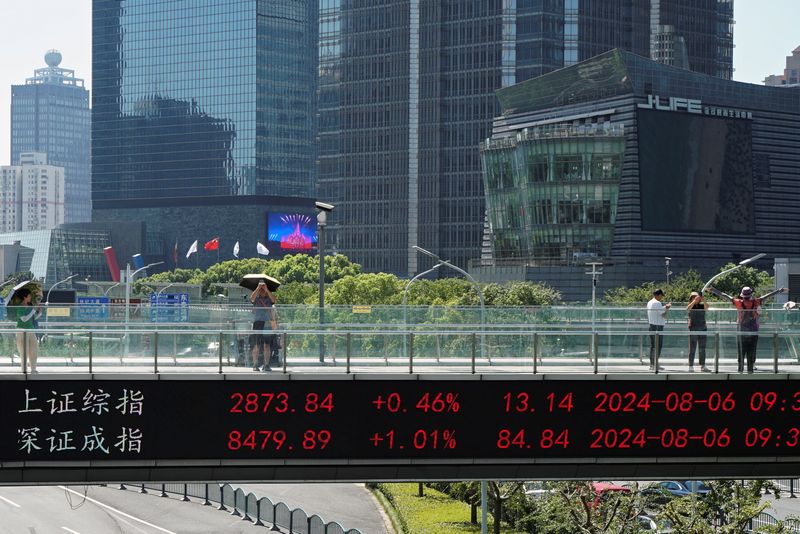NEW YORK (Reuters) - An epic unwinding of the yen-funded carry trade that has reverberated through global markets may have further to go, analysts said on Tuesday.
Days of havoc in global markets have analysts rushing to calculate the size of a global carry trade in which investors have borrowed money from economies with low interest rates, such as Japan or Switzerland, to fund investments in higher-yielding assets elsewhere.
The strategy, which kept money flowing into global risk assets for years, was shaken after the Bank of Japan raised interest rates last week, forcing some investors to abandon the trade as the yen surged higher. The resulting unwind sparked huge losses in global stock markets and saw Japan’s Nikkei notch its worst day since 1987.
"I’d guess the carry trade is only about 50% unwound,” wrote James Malcolm, a UBS Japan macro strategist based in London, in a Tuesday note to clients.
Malcolm estimates the dollar-yen carry trade grew to at least $500 billion at its peak. He calculated that some $200 billion of the carry trade has been unwound over the last two to three weeks.
“How much the carry trade could unwind depends not so much on the level of the interest rate differential but the change in the interest rate differential,” he said. Comparing the current move with the carry trade unwind of 1998 suggests more unwinds could be ahead, he said.
Shaun Osborne of Scotiabank echoed that sentiment, noting that two gauges of the carry trade - the Bloomberg G10 Carry Index and the Bloomberg GSAM FX Carry Index - had shed around 5%, only half of what they lost in three notable carry trade unwinds in the past.
"The adjustment in carry positioning over the past few weeks has been rapid but it may have further to run,” he said in a Tuesday note.

Hedge funds and other speculative investors, whose positioning is captured in a weekly report by the Commodity Futures Trading Commission, have only reduced their short yen positions by about 50%, Osborne said. The latest report was released last week.
The report “is a small window on FX positioning but the data along with the (so far) relatively limited correction in carry trade index returns suggest that there is more room for the carry trade to unwind in the short run," he said. "That would suggest more volatility in risk assets ahead and more strength in the JPY ahead."